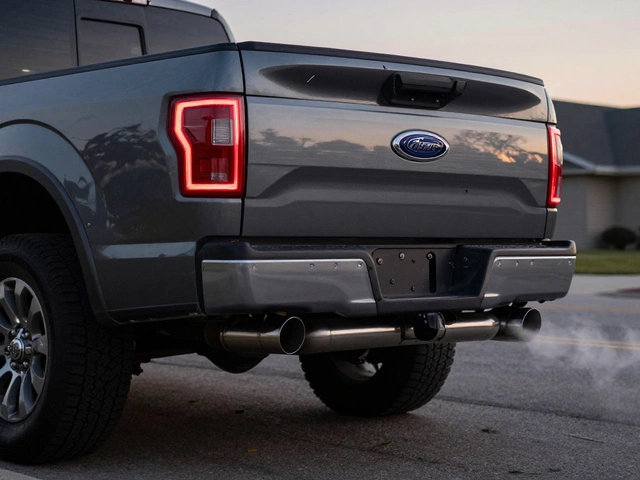
Ever pressed the accelerator and felt your car hesitate, cough, or shake? That little bit of roughness isn’t just random—it often traces right back to your spark plugs. They’re tiny, almost forgettable, but trust me, old or damaged spark plugs can turn your smooth ride into a chugging lawnmower. But is it true that sticking in new spark plugs will snap everything back into shape? Or is it just something mechanics like to say when business is slow? The answer is a bit more interesting than you might think, and it could save you more petrol—and headaches—than you’d ever expect.
What Spark Plugs Actually Do (And How They Mess Things Up)
Think about what happens every time you turn the key: you’re not just making the engine whir. You’re waking up a sequence that relies entirely on the spark plug’s ability to light a precise little explosion—over and over, thousands of times a minute. Spark plugs ignite the fuel-air mixture in each cylinder, which is literally what makes your car move.
Now, when brand-new, spark plugs fire clean, sharp sparks at exactly the right moment. But as miles build up, carbon deposits and heat work their way in. According to a 2024 Bosch study, even quality spark plugs can see their spark weaken by up to 30% after 60,000 miles. If you’re running an older petrol model, those numbers shoot up—sometimes misfiring before you even hit 40,000 miles. When the spark is off, your car burns fuel less efficiently, so you lose power and the engine works harder. You might notice sluggish starts, uneven idle, or that annoying check engine light. On top of that, unburned fuel dumped through the exhaust will cook your catalytic converter before its time, and that’s an expensive headache no one wants.
It’s easy to think, “Meh, it’ll sort itself.” But spark plug troubles hardly ever get better on their own, and every misfire or rough idle means extra wear on the rest of the engine. Scarily, misfiring cylinders can cause up to 16% more fuel to be wasted, according to data from NGK’s 2025 vehicle reliability survey.
If you’re wondering, it’s not just classic cars—modern ones get tripped up too. Turbocharged engines, hybrids, and high-compression setups all rely on perfect spark. And if your car runs on LPG or E85, you’ll fly through plugs even faster. Don’t forget—racing ignition systems or “performance” aftermarket plugs won’t fix a tired engine. They just mask the symptoms, temporarily.
Spot the signs? Watch for these:
- Hard starts—especially in damp or cold weather
- Stuttering acceleration
- A rough, jumpy idle
- Noticeable drop in MPG
- Check engine light blinking
You might also get a burnt smell, or the engine just sounds like it’s working harder than usual. Some vehicles log misfire codes you can read with a cheap OBD-II scanner, showing exactly which cylinder is moody.
And no, you don’t need to be a seasoned mechanic to check them. In most engines, a ratchet and the right socket let you pull a spark plug in under ten minutes. If the tips are black, crusty, or melted, that plug’s long past its best. Healthy ones usually have a light, almost tan color.

Why New Spark Plugs Change the Game (And The Hard Facts To Prove It)
Here’s the real secret: new spark plugs don’t just “make things better”—they return your engine to the efficiency it was designed for. Studies by the RAC in 2023 showed cars with new spark plugs improved their fuel economy by an average of 5%, with some high-mileage vehicles ticking up to 10%. The gains go beyond the petrol station, though. Smooth firing from fresh plugs helps prevent raw fuel from damaging the catalytic converter, and even cleans up your emissions. It’s not just about miles per gallon—it’s about the life of your engine, too.
The type of spark plug matters, of course. Cheap copper plugs might do a job for 20-30,000 miles but die quick in higher-performance or newer engines. Most quality cars made since 2015 use iridium or platinum plugs, lasting up to 60,000-100,000 miles. Still, they don’t last forever. The gap widens, the metal wears, and performance dips—sometimes so slowly you don’t even notice. New spark plugs restore full, sharp ignition. This means better throttle response, less vibration, and often a quieter idle. For cars running on LPG (autogas), Denso reports that plug changes every 15-20,000 miles keep everything in top shape.
Check out this breakdown of performance changes from a set of cars tested in Bristol in early 2025:
| Car Model | Mileage | Old Spark Plug Gap | MPG Before | MPG After | Idle Smoothness |
|---|---|---|---|---|---|
| Ford Fiesta 1.0 Ecoboost | 73,000 mi | 1.3mm (worn) | 41.5 | 45.2 | Much improved |
| VW Golf TSI | 88,500 mi | 1.6mm (severe gap) | 38.0 | 41.7 | Smoother, quiet |
| Toyota Prius | 98,200 mi | 1.1mm | 52.4 | 54.3 | No stutter |
| Hyundai i20 (LPG) | 54,000 mi | 0.9mm | 35.8 | 39.7 | Idle fixed |
Spot the pattern? As plug gap widens or deposits form, efficiency drops and the engine runs rough. New plugs, correctly gapped, bring back the lost edge. Mechanics in Bristol have shared plenty of stories where changing plugs made an old engine feel nearly new again—especially on cars ignored for years.
If your car is using a lot more fuel or needs two tries to start (and battery, air filter, and injectors check out fine), don’t put off a plug swap. If you tow, drive short trips, or run lots of start-stop in traffic, your plugs could be wearing faster than the service book suggests.
You probably don’t need “performance” plugs unless your car is heavily modified, but don’t buy the cheapest. Look up what your engine was designed for—usually printed on a label in the engine bay or in the handbook. Matching the recommended heat rating, material, and gap is what actually keeps everything ticking along nicely. You’ll find dozens of posts on forums from people who struggled for months with poor running—only to have a new set of OEM plugs fix it in half an hour.

Should You DIY the Job, or Hand It to a Mechanic?
Now you’re probably thinking: is it worth doing myself or should I just get a mechanic to sort it? Swapping spark plugs isn’t madly complicated—on most cars, it’s easier than changing oil. What catches people out is usually access: some engines bury the plugs deep under intake pipes or plastic covers. If you’ve got a basic socket set, a torque wrench, and the confidence to follow clear instructions, you’ll be fine. You’ll save a fair few quid, too. Local garages in Bristol usually charge between £80 to £120 for a spark plug change (labour and parts) in a small car, and modern performance models can be double that. DIY, and you’re usually in for £20 to £50 for a full set of quality iridium plugs.
Here’s a basic step-by-step if you want to try it:
- Let the engine cool fully before starting—spark plugs and heads get roasting hot.
- Carefully unplug the coil or lead from each spark plug—don’t yank on the wires.
- Use a spark plug socket (with a rubber insert) to gently loosen each plug.
- Check the old plugs: look at color, wear, and any oil/fuel residue.
- Read up (or look up online) the correct gap and torque for your plugs and car.
- Fit the new plugs by hand first, then tighten gently with the wrench. Don’t overdo it—heads are soft alloy!
- Reconnect leads or coils, double check everything is secure, and start up.
If any plug’s tough to remove, don’t force it. Corroded plugs on older engines can snap—a tricky (and expensive) fix. Pour a little penetrating oil and let it soak. If you’re ever unsure, get a mechanic. Better a small fee than a snapped-off spark plug shank.
After new plugs, listen for a smoother idle and feel for sharper acceleration. If the check engine light stays off, job’s a good’un. It’s the kind of upgrade you notice immediately, especially on high-mileage motors that haven’t had attention in years.
One last thing—don’t forget to reset your car’s ECU if it needs it; read your car’s manual or check a quick guide for your model. Some cars will adjust to the new spark faster if you unplug the battery for a few minutes (be sure to have your radio codes handy for older systems!).
So, will your car run better with new spark plugs? If your current plugs are tired or fouled, absolutely—it’s a cheap, quick, and proven fix for everything from power loss to poor fuel economy. Keep your car’s spark healthy, and you’ll feel the difference every time you drive.





